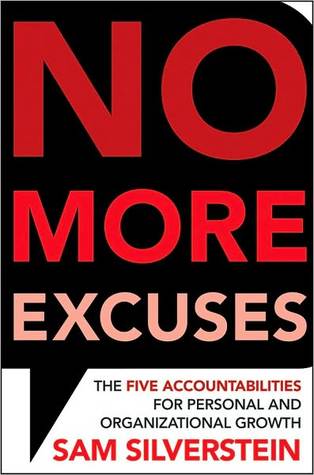Click here to return to Blog Post Intro

Silverstein talks about what he calls the “Accountability Zone”—a place where actions are fully in harmony with promises to stakeholders. When you are in the Accountability Zone, all stakeholders know what you’ve done, where you stand, and why. You are operating above board and transparently.
He explains that any discussion of organizational ethics begins with individual accountability because we all eventually have to pay the consequences when individuals are not accountable to themselves first. Ultimately, accountability comes down to choices…the only things we truly own. Silverstein claims that if you show up with a plan, work that plan, don’t make excuses, and are proactively accountable, you’re in the top 5 percent. That’s “Out of This World Leadership”, so let’s learn more about the 5 accountabilities we need to shoot for the stars –
1. Doing the Right Things
Leadership starts with knowing yourself…your strengths, your weaknesses, and what makes you successful. With that knowledge, you need a plan…what are you trying to accomplish? If we choose activities that support our strategic intent, we are “doing the right things.” Ask yourself, “What can I do consistently, with a commitment to excellence, that will make it easier to achieve this goal sooner rather than later?”
2. Managing Your Space
With a clear strategic intent, relentlessly eliminate activities that don’t help you achieve your intent.
Silverstein calls this “adding by subtracting.” This means being willing to step away from things that are working, even though they may be familiar, to make room for something that may work better. I’ve heard it said that “good is the enemy of great”, and that’s the idea here.
Your leadership time and bandwidth is one of the scarcest resources in the business world. Your ability to focus on the right things and tune everything else out is a key to your success.
For your organization, when you get more than two or three initiatives in a given year (four at the most), there’s no way you’re going to accomplish them because it’s impossible to keep track of them. So, Silverstein suggests that when you do your strategic planning, make sure you walk out of the process with no more than two or three initiatives. Then, create responsibility for those initiatives. Delegate both the responsibility and the authority for your people to do the right things that support your organization—and then stay engaged enough to track whether they’re actually delivering the results you and your team have agreed upon.
3. Managing Your Process
Continue to be proactively accountable, especially when you encounter obstacles. Leaders in process-focused organizations go out of their way to praise and reward individuals who report near misses. Silverstein explains that every time we make an excuse and every time we abdicate, we stop managing the process. And when that happens, we move out of the Accountability Zone.
4. Establishing the Right Expectations
The targets you set for yourself and your team have a huge impact on your actual achievement. Each individual needs to have a unique goal that is both realistic and that at the same time stretches that person.
A common mistake in establishing expectations is to set the expectations based on the outcome desired. Instead, Silverstein explains, you should set your expectations based on the right things that will deliver that outcome when an individual team member performs them consistently.
5. Contributing to Your Relationships
The fifth accountability is to make a positive contribution to people around you…family, friends, business colleagues, and people in the community. The secret of successful relationship management in terms of both personal and social accountability can be summed up in one word: give. Look for reasons to serve others.
Silverstein explains that when he’s training senior executives in the “No More Excuses” program to create a culture of accountability in their organization, they often ask how to cultivate ethical, responsible, and transparent decision making. The answer he provides isn’t to write a memo or give a lecture. It’s to give, give, and give some more to the people who are closest to you in the organization. Just keep giving to the people in your sphere. Give time, give energy, give thought, and give care. Just keep giving, and the relationships will grow.
That’s the mark of a Servant Leader…

